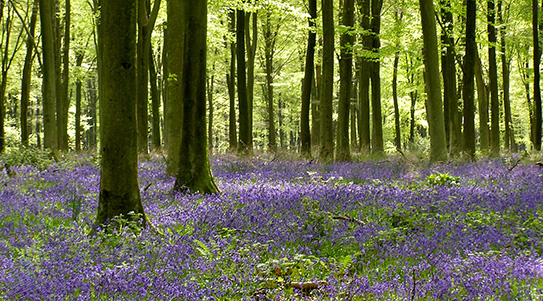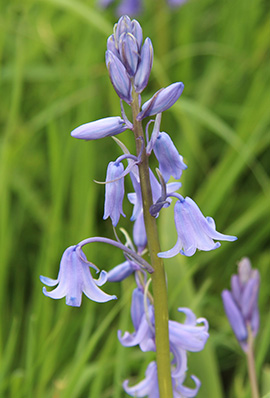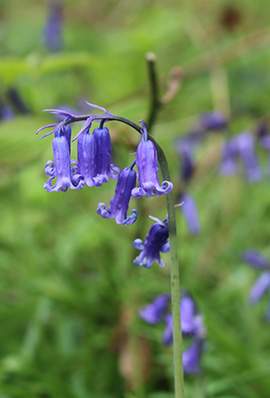Long-held fears of losing the beloved British bluebell species (Hyacinthoides non-scripta) through hybridisation with a rampant non-native may have been unnecessary.

For centuries the British bluebell has shared habitats with non-natives, commonly referred to as 'Spanish' bluebells (Hyacinthoides hispanica) and a hybrid of the two. This has caused widespread speculation that – like the Scottish wild cat and the native wild apple – ongoing interbreeding could intermix the gene-pools to such an extent that pure British bluebells become extinct.
To understand the true nature of the potential threat, a new study published in Plants, People, Planet set out to quantify the extent of hybridisation between the native and non-native species.
However, genetic analyses of 501 bluebell samples from 56 populations around Britain and the Iberian Peninsula brought to light the fact that the non-native bluebells collected in Britain were not actually the 'Spanish' bluebell but a hybrid of it and the British species. Furthermore, Portugal, not Spain, was actually the country of origin of the first H. hispanica introductions to the UK.

Hyacinthoides hispanica

Hyacinthoides non-scripta
Under closer examination, not only did hybrids make up just 16 per cent over the overall number studied but backcrosses between the hybrid non-native bluebell and the British species were primarily found in public parks. Of native bluebells sampled from natural habitats, only two per cent showed evidence of introgression – the transfer of genetic information back and forward from one species to another as a result of hybridisation.
Dr Markus Ruhsam, a molecular ecologist at RBGE and lead author on the research paper explained: "Although hybridisation might be frequent in locations where non-native bluebells have been introduced, we found no evidence of large-scale introgression in natural H. non-scripta populations.
"This might explain the widespread nature of the non-native hybrid in the UK. Rather than hybrid vigour and enhanced competitive ability, it is likely that planting of the non-native in private and public gardens – combined with mislabelled nursery stock – might have facilitated its country-wide distribution."
Read the full press release by Shauna Hay on the Royal Botanic Gardens Edinburgh website: Sex in the country is better for British bluebells.
